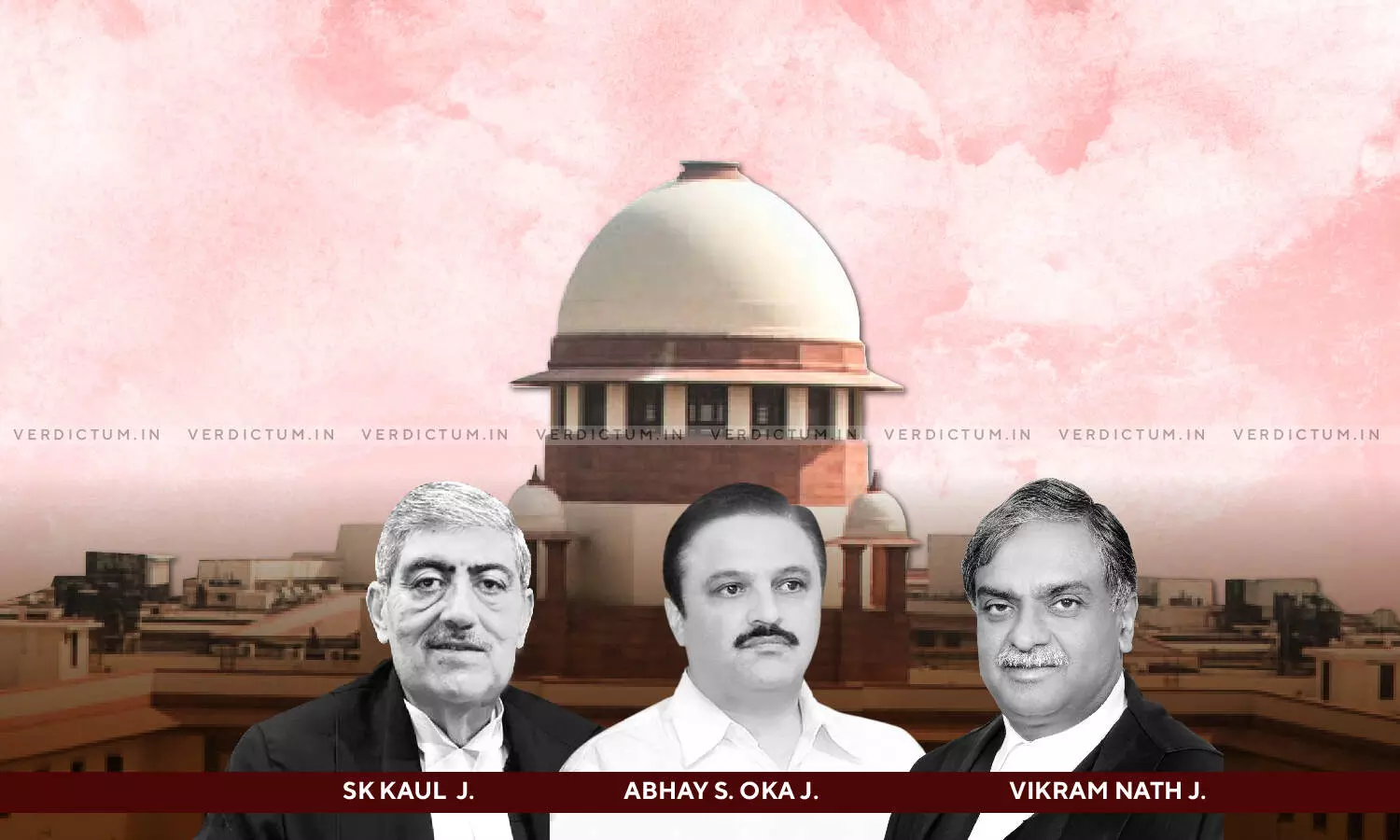
Comments On Collegium Are Not Very Well Taken, Advise The Govt: Supreme Court To Attorney General
 |
|Today, the Supreme Court told the Union Government that the law laid down by the Supreme Court has to be complied with. "Let not everyone think that I will follow the law that I think is right.", the Court orally observed.
A Bench led by Justice Sanjay Kishan Kaul and comprising Justice Abhay S Oka and Justice Vikram Nath was hearing a contempt petition filed by Advocates' Association of Bangalore against the Centre's alleged failure to take further action on the names recommended by Collegium for judicial appointments. A similar plea filed by the Centre for Public Interest Litigation was also listed for hearing before the same Bench.
"These kind of delays give rise to prayers (for issuance of writ of mandamus) which are being made today. These are unavoidable situations, why didn't we issue contempt notice", the Court remarked.
It was repeatedly sought by Senior Advocate Vikas Singh that a writ of mandamus for filling up vacancies may be passed by the Court or a contempt notice be issued against the Centre. "Majesty of law cannot be upheld without a contempt notice", said Vikas Singh, who is also President of the Supreme Court Bar Association.
Advocate Prashant Bhushan made a two fold prayer before the Court, saying that (1) mandamus may be issued in cases where a timeline is not adhered to, and (2) if there is no response within the time, it shall be deemed to be approval.
"Mr. Singh is referring to speeches, which are not very good. Comments on the Supreme Court Collegium are not very well taken. You will have to advise them to control their…" said Justice Vikram Nath to the Attorney General.
"We expect the Attorney General to play the role of the senior most law officer in advising the Government of the legal position and in ensuring that the legal position is followed. The scheme of our Constitution stipulates the 'Court' as a final arbiter on the position of law. It is necessary that all follow the law laid by the Court. The power to enact the law is with the Parliament, but it is subject to the scrutiny of the Courts", said the order dictated in the open court.
Cause Title- The Advocates Association Bengaluru v. Abrun Mitra & Anr.
Click here to read/download Order